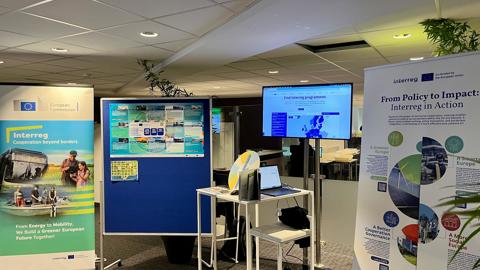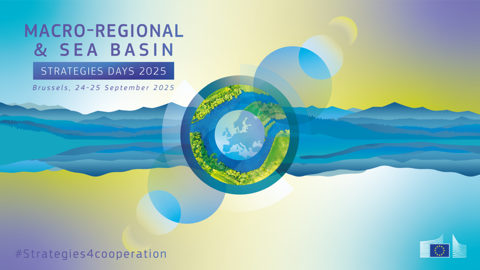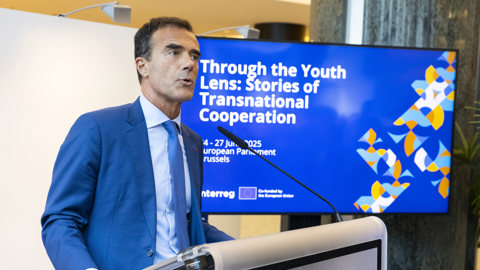Find Interreg programmes
Discover Interreg programmes through the interactive map below. Filter by country, thematic objectives or type of programme to find the information you need. Data is provided by keep.eu.Programmes
Select Programme type
Legend
Need more information about Interreg programmes?
Looking for deeper insights? Learn more about the thematic objectives driving Interreg programmes, or explore the different types of programmes available, to find the one that best suits your needs.
Explore news & stories
Dive into more relevant stories that made a difference in the area.
Interreg projects drive energy transition at European Sustainable Energy Week 2025
Thirteen projects from thirteen Interreg programmes showcased how cooperation powers the green transition at the European Sustainable Energy Week (EUSEW) 2025, represented under the Interreg Thematic Community for a Greener Europe, coordinated by Interact.
15 July 2025
Interactive map tool helps build stronger regional partnerships
A new map tool from Interact supports regional cooperation by helping users find suitable partners for joint projects during the 2021–2027 programming period.
14 July 2025
Registration open: Macro-Regional and Sea Basin Strategies Days 2025
Join policymakers and stakeholders across Europe to collaborate on shared challenges and new opportunities in regional development and maritime affairs. Registration is now open for the EU Macro-Regional and Sea Basin Strategies Days 2025.
14 July 2025
MEP Sandro Gozi hosts youth exhibition on Transnational Cooperation in the European Parliament
What does transnational cooperation mean for Europe’s future, and why must youth lead the way? In an exclusive interview, MEP Sandro Gozi reflects on the 'Through the Youth Lens' exhibition at the European Parliament and shares why initiatives like Interreg are essential for tackling today’s shared challenges. Dive into the full story to explore his vision and discover the powerful message behind the exhibition.
09 July 2025